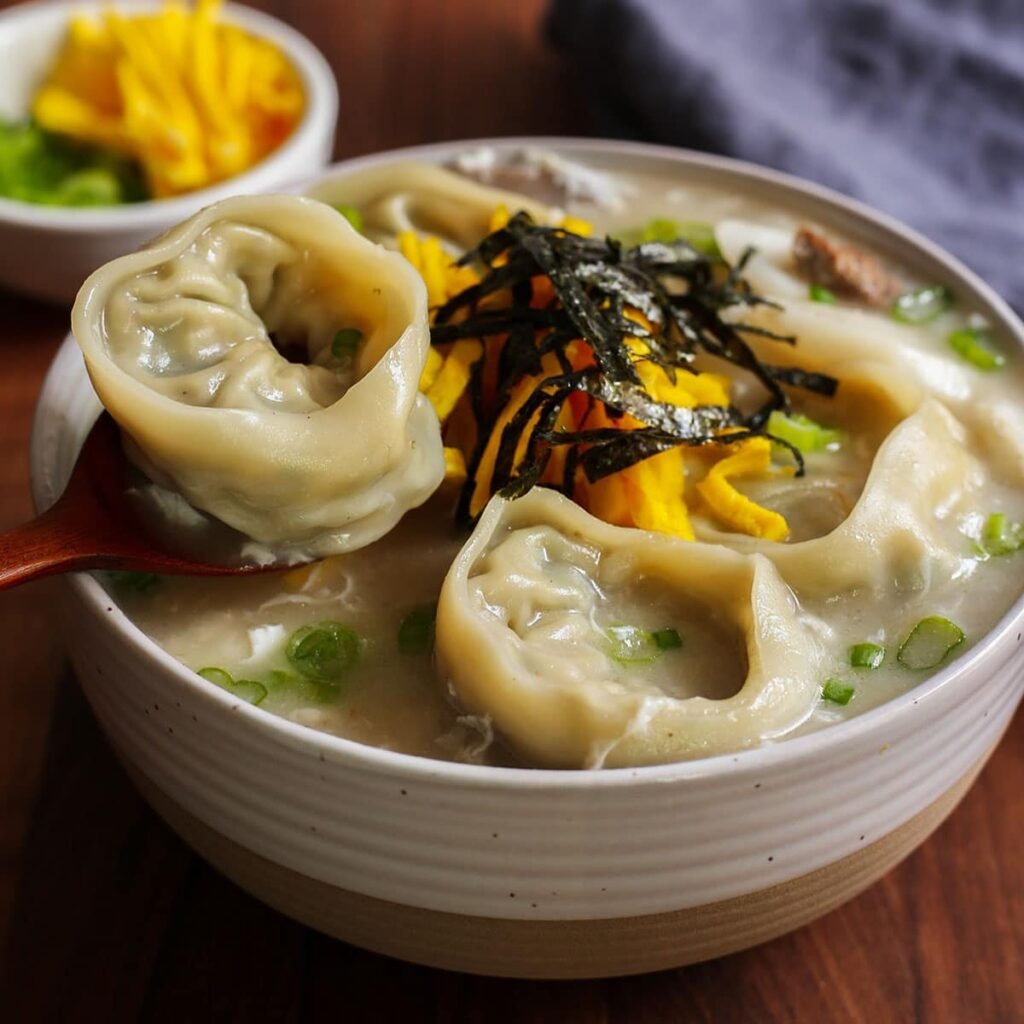Manduguk – 만두국 – Recipe.
Korean Dumpling Soup.
Manduguk, a traditional Korean dumpling soup, is a comforting and flavorful dish that holds a special place in Korean cuisine, especially during celebrations like Lunar New Year. This hearty soup features dumplings, vegetables, and a savory broth, creating a harmonious and satisfying culinary experience. Delve into the heartwarming flavors of Korean home cooking with this recipe for Manduguk, a delightful soup that brings joy to the table.
Estimated Time:
40-50 minutes
Ingredients:
1 pack of Korean dumplings
For the Soup:
8 cups Beef or Anchovy Broth
1 cup sliced Korean Rice Cakes (tteok)
1 cup sliced White Mushrooms
1 cup sliced Korean Radish (mu)
1 cup julienned Carrots
1 cup chopped Green Onions
2 cloves Garlic, minced
2 tablespoons Soy Sauce
1 tablespoon Sesame Oil
Salt and Pepper to taste
Products you need in our store:
1 pack of Korean dumplings
Korean Rice Cakes (tteok)
Korean Radish (mu)
Soy Sauce
Sesame Oil
Preparation:
- Prepare Dumplings:
- If using store-bought dumplings, follow the package instructions for cooking. If making homemade dumplings, prepare the filling and wrap them according to your preferred method.
- Prepare Broth:
- In a large pot, bring the beef or anchovy broth to a boil. Add sliced rice cakes and let them cook until slightly softened.
- Add Vegetables:
- Incorporate sliced mushrooms, Korean radish, carrots, and chopped green onions into the pot. Simmer until the vegetables are tender.
- Season the Soup:
- Add minced garlic, soy sauce, sesame oil, salt, and pepper to the soup. Adjust the seasoning according to your taste preferences.
- Introduce Dumplings:
- Gently place the cooked or steamed dumplings into the soup. Allow them to heat through.
- Simmer and Serve:
- Simmer the Manduguk for an additional 5-10 minutes to meld the flavors. Check the seasoning and adjust if needed.
- Garnish and Serve Hot:
- Garnish the soup with additional chopped green onions. Serve the Manduguk hot, ideally with a bowl of steamed rice.
Benefits:
- Protein-Rich Dumplings: The dumplings provide a protein boost, especially if filled with a mixture of meat and tofu.
- Vegetable Nutrients: The inclusion of mushrooms, Korean radish, carrots, and green onions adds essential vitamins and minerals to the soup.
- Hydrating Broth: The savory broth contributes to hydration, and beef or anchovy broth can offer additional nutritional benefits.
- Cultural Significance: Manduguk is often enjoyed during Lunar New Year celebrations in Korea, symbolizing the promise of a prosperous year ahead.

